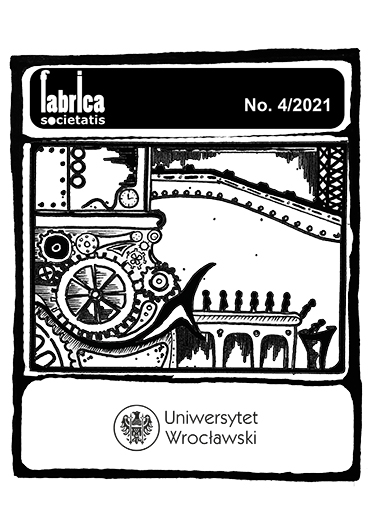Zachowania gestyczne i wrażenia olfaktoryczne literackich i filmowych transbohaterów
Gestural behavior and olfactory impressions of trans characters in literature and film
Author(s): Anna Kujawska-KotSubject(s): Social Sciences, Language and Literature Studies, Gender Studies, Fine Arts / Performing Arts, Sociology, Sociology of Art, Sociology of Literature
Published by: Wydawnictwo Uniwersytetu Wrocławskiego
Keywords: transition; transsexual character; gestures; face; smell
Summary/Abstract: The article deals with the problem of non-verbal forms of gender identity communication by transsexual characters. The aspects of pretransition and transition, such as the gestural behavior and the manifestation of one’s psychological sex by the selection of the right smell, were usually placed on the margins of scientific inquiry. However, properly selected literary and film fragments may serve as appropriate research material to present such issues as the role of gestures, facial expressions, ways of walking, the meaning of micro-movements of the face, and the choice of perfumes. The paper attempts to answer how the gestures, facial expressions, ways of walking, and even the choice of perfume of transsexual characters shape gender (re)presentation in public space as well as what functions play gestural behaviors, facial micro-movements, and perfumes in the non-verbal communication of transwomen’s and transmen’s gender identity. In the study of cultural texts, a montage technique was used. It appears that in the process of self-creation and the representation of their gender identity, the characters give important meanings to various trifles. Textualizing themselves, transwomen and transmen often fetishize their own faces; and on the other hand, experiencing their own faces can astonish with subtlety and synesthetic character. Intentionally selected gestural behaviors and perfumes are embedded in their bodytext to mark gender affiliation. Although these choices refer to the stereotypical body language of a woman or man and their smell, they do not have pejorative overtones. The ontic status of the stereotype is changing. It becomes an inspiration, a signpost, and a vehicle for communication.
Journal: Fabrica Societatis
- Issue Year: 2022
- Issue No: 5
- Page Range: 25-40
- Page Count: 16
- Language: Polish

